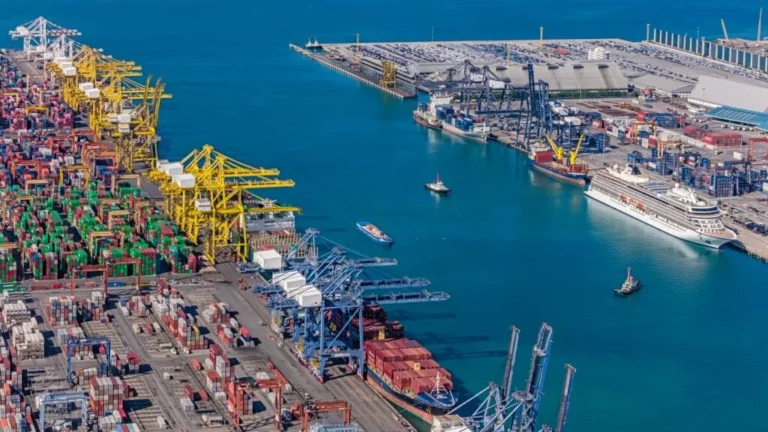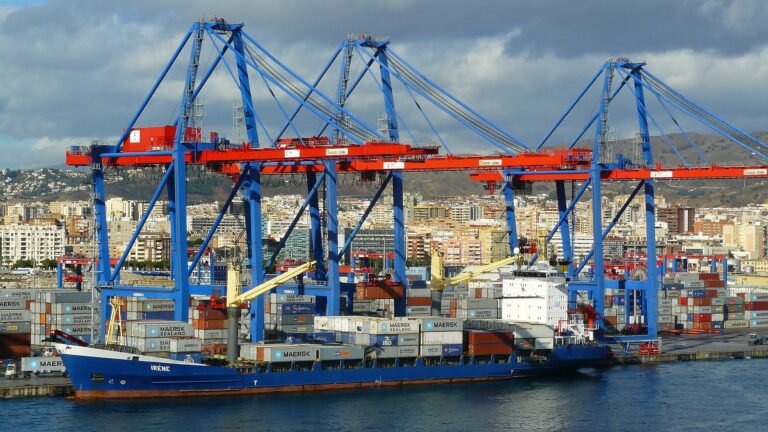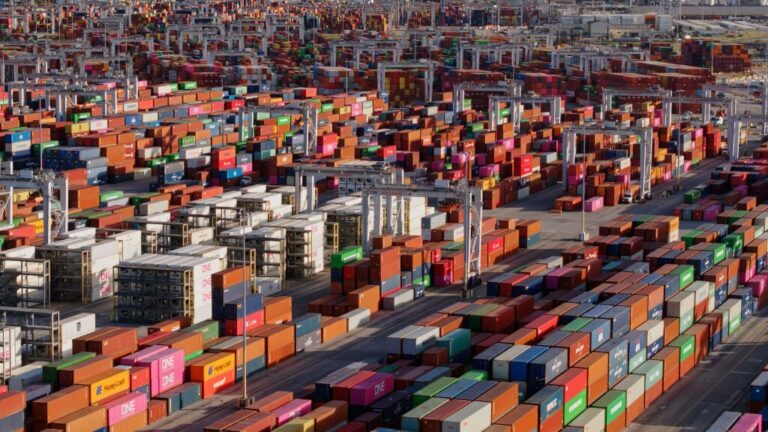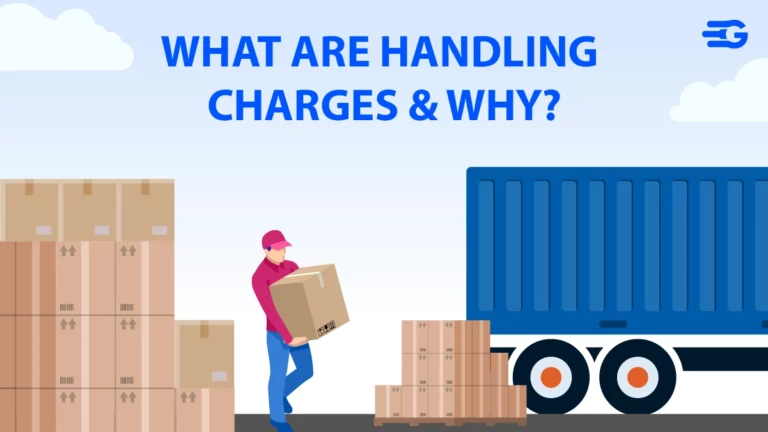What is a freight broker: A Comprehensive Guide to Their Critical Role in Logistics
The smooth flow of goods we all rely on wouldn’t be possible without the invisible hands of freight brokers. These masters of logistics serve as a vital link between shippers, or corporations that have items to transport, and carriers, such as trucking firms or railroads, to guarantee prompt and efficient delivery everywhere in the world. But who exactly is a freight broker, and how do they affect the complex workings of international trade?
What is a Freight Broker?
A freight broker plays the role of a skilled negotiator who understands both sides, seamlessly matching requirements and resources. They possess extensive knowledge of the logistics landscape, encompassing shipping regulations, routes, carrier capabilities, and market trends. This expertise allows them to act as trusted advisors and strategic partners, helping shippers navigate the complexities of freight transportation and find the most cost-effective and efficient solutions.
Defining the Role of a Freight Broker
What does a typical day for a freight broker include? They have a wide range of duties, which include things like:
Understanding shipper needs: It is critical to comprehend shipper needs in great detail. It entails going above and beyond cargo criteria to take into account particular needs such packaging specifications, insurance preferences, temperature management, and security issues. One of the main responsibilities of a freight broker is to provide logistical consultations. This involves analysing previous shipping data, finding optimisation opportunities, and suggesting cost-effective options like multi-carrier strategies or modal selection. Establishing clear communication lines, offering flexible options, and proactively addressing potential pain spots are all necessary to create long-term client relationships. Building trust is a critical element of this function.
Carrier sourcing and negotiations: A freight broker needs to be knowledgeable about network management. It is essential to match the appropriate carrier to the particular requirements of each cargo by making use of in-depth knowledge of the various carrier capabilities, strengths, and weaknesses. By continuously analysing market trends, fuel prices, and capacity fluctuations, the freight broker can stay on top of the competition and negotiate the best terms and pricing for shippers. Creating enduring alliances with dependable carriers is another essential duty to provide dependable service, special treatment, and possible volume reductions.
Documenting and managing paperwork: For a goods broker, accurate and compliance documentation is a non-negotiable need. It is essential to make sure that all shipping paperwork are free of errors and adhere to all applicable laws in order to prevent delays and possible fines. By using technology, such as freight management systems, to automate paperwork procedures, increase productivity, and offer real-time tracking of documentation, the freight broker also contributes to the streamlining of operations. Clear and open communication with shippers and carriers regarding paperwork needs is essential to expeditious completion and the avoidance of misunderstandings.
Monitoring shipments and providing updates: One of a goods broker’s main responsibilities is to follow shipments proactively. By utilising real-time cargo surveillance solutions, one may anticipate any delays, detect problems early on, and notify stakeholders proactively of developments. The freight broker, skilled in handling multiple modes of transportation, guarantees smooth updates whether the shipment is travelling by air, sea, or land. It is imperative to provide round-the-clock assistance and communication channels in order to promptly resolve concerns and provide updates, taking into account time zone variations.
Resolving issues and managing disruptions: In the supply chain, the goods broker is essential to managing disruptions and resolving problems. This entails applying innovative problem-solving techniques and problem-solving abilities to create backup plans for unforeseen difficulties like weather-related delays, equipment malfunctions, or route closures. Minimise downtime and guarantee timely delivery by having effective communication with all stakeholders involved, clearly explaining the situation, and presenting alternative options. Furthermore, the goods broker bears the responsibility of enhancing the supply chain’s resilience by anticipatorily detecting possible risks and weaknesses, minimising their consequences via tactical collaborations, and executing adaptable routing alternatives.
The Evolution of Freight Brokerage
The days of landlines and rolodexes are long gone in the world of freight brokerage. Before the 1980s, phone negotiations and carbon copy paperwork took the role of human interactions and paper maps. Subsequently, deregulation sparked a rivalry among brokers, who used their ingenuity to construct better offers for shippers by utilising early software and dial-up modems.
However, the digital revolution has transformed the industry, with online freight marketplaces and advanced logistics software streamlining operations and enhancing efficiency. Today, freight brokers leverage these technologies to automate tasks, access real-time market data, and provide their clients with greater transparency and control over their shipments.
One such freight management software is GoComet, providing real-time shipment tracking, automation of tasks, and access to live market data. Experience enhanced transparency and control over your shipments with GoComet’s innovative services, empowering freight brokers to navigate the modern logistics landscape seamlessly.
How Freight Brokers Work
Freight brokers are like efficiency experts in the world of shipping. They act as middlemen who do not own the cargo or shipping vessels. Rather, they use their knowledge and resources to help carriers and shippers succeed, keeping the global flow of commerce going.
Connecting Shippers and Carriers:
Freight brokers are key players in simplifying connections by acting as a mediator between shippers and carriers. Their knowledge goes beyond simple assistance; and don multiple hats to make this link fool proof.
Comprehending Shipper Needs: Brokers meticulously compile information regarding every shipment, such as the kind of goods, the origin and destination, the intended delivery window, and any financial restrictions. They are skilled at converting these specifications into workable blueprints.
Using a Network: Brokers use their vast network of carrier relationships, developed over years of experience, keeping the shipper’s demands in mind. This network includes a wide variety of trucking businesses, so they can locate appropriate matches for different types of shipments.
Matching and Negotiating: Brokers analyse quotes from potential carriers, considering factors like cost, reliability, route efficiency, and carrier reputation. They negotiate to secure favourable rates and terms, ensuring a fair deal for both parties.
The Process of Freight Brokering
After the carrier selection process, the freight broker assumes a pivotal role in ensuring a hassle-free shipment experience.
Handling Paperwork: Freight brokers play a pivotal role in generating accurate bills of lading, invoices, and other essential documentation. In addition to ensuring regulatory compliance, this careful attention to documentation also improves the transit process’s general efficiency by lowering the possibility of delays and disagreements.
Monitoring the Shipment: Acting as the primary point of contact, freight brokers keep a watchful eye on the entire shipment process. Leveraging real-time tracking technology, they proactively identify potential issues, allowing for swift resolutions. This not only enhances the overall efficiency of the logistics chain but also promotes transparency, keeping all stakeholders well-informed about the progress of their shipments.
Post-Delivery responsibilities: Beyond the point of delivery, freight brokers continue to add value to the logistics chain. They take charge of post-delivery tasks such as invoice administration and dispute settlement. By efficiently managing these aspects, brokers ensure a smooth conclusion to the logistics process, minimising administrative burdens for shippers and carriers alike.
The Benefits of Using Freight Brokers
Leveraging the expertise of freight brokers offers businesses a strategic advantage in navigating the complexities of logistics. From cost-effective carrier negotiations to seamless coordination, the use of freight brokers streamlines the transportation process, providing companies with enhanced efficiency and peace of mind in their supply chain management.
Cost-Effectiveness and Efficiency:
Handling the intricacies involved in freight transportation can prove to be a demanding and prolonged undertaking. But working with a freight broker has real benefits that improve your business’s profitability.
Bulk Purchasing Power: Through their vast network, freight brokers are able to get reasonable rates, providing the buying power of an industry specialist. They handle discussions and get good rates, which saves you money and time on each shipment.
Time-Saving Expertise: By streamlining the logistics process, freight brokers help you save time and effort. They quickly identify appropriate carriers thanks to their industry knowledge, freeing you up to concentrate on your main business instead of worrying about time-consuming carrier research.
Route Optimisation: A major asset of freight brokers is their ability to arrange routes effectively. They use their knowledge to make sure your shipments travel the fastest, most economical routes possible, which improves logistics and cuts down on wasteful spending.
Decreased Administrative Overhead: Freight brokers handle all logistics documentation, including bills of lading and invoices, by streamlining paperwork processes. By doing this, administrative burdens are reduced and you are free to focus on business issues instead of becoming bogged down in paperwork.
In a tight market squeezed by rising transportation costs and supply chain disruptions, manufacturers are increasingly turning to freight brokers for a lifeline. As reported by The Wall Street Journal, there has been a notable 15% uptick in freight brokerage revenue over the past year. The growing preference for brokers stems from manufacturers recognizing their expertise in optimising shipping processes. Leveraging a vast network of carriers and market knowledge, brokers secure competitive rates, simplify procedures, and closely monitor shipments for timely deliveries and satisfied customers. The outcome is a pragmatic reduction in costs, enhanced operational efficiency, and a bolstered bottom line.
Compliance and Safety in Freight Transport:
Entrusting your cargo to a freight broker brings not only efficiency but also peace of mind through robust compliance and safety measures.
Regulatory Expertise: Freight brokers navigate complex freight regulations, ensuring compliance with laws and regulations for seamless border crossings. Their regulatory knowledge assures you that your shipments meet all necessary requirements.
Carrier Vetting and Selection: Acting as discerning gatekeepers, freight brokers meticulously vet carriers for reliability, safety, and licensing. This careful selection process minimizes the risk of delays and logistical issues, providing a dependable transportation network for your goods.
Real-Time Tracking and Visibility: Freight brokers offer real-time visibility into your shipments through advanced tracking technology. This transparency keeps you informed about the progress of your cargo, offering a practical tool for logistics management.
Risk Management and Mitigation: Freight brokers excel in risk management, providing tailored strategies and comprehensive knowledge of insurance options. This expertise minimizes potential financial losses and ensures your cargo is covered in case of unexpected events.
Becoming a Freight Broker
For individuals passionate about logistics and eager to play a vital role in global trade, a career in freight brokerage can be incredibly rewarding. The path to becoming a freight broker typically involves:
- Attaining a high school diploma or its equivalent.
- Enrolling in pertinent training programs or acquiring certifications in logistics and freight management.
- Garnering hands-on experience through entry-level roles within logistics companies or freight brokerages.
- Cultivating a robust professional network by engaging with industry peers and establishing solid relationships with carriers.
- Remaining current on industry trends and embracing technological advancements to stay well-informed and adaptable in the dynamic field of freight brokerage.
The Future of Freight Brokering
The freight brokerage industry is changing due to the use of new technology, which portends both obstacles and chances for expansion. Brokers will handle shifts in sustainability, efficiency, and emerging platforms in this dynamic future, influencing the course of the logistics sector.
Technological Advancements in Freight Brokerage
In this evolving scenario, we can anticipate a future where AI enhances delivery efficiency, blockchain ensures secure transactions, and sustainable practices become a norm on the roads.
AI Streamlines Operations: AI algorithms will play a crucial role in optimising logistics. These algorithms will analyse real-time data to predict traffic patterns, optimise routes, and match carriers accurately. AI will assist in anticipating needs, suggesting efficient pathways, and facilitating real-time rate negotiations.
Blockchain Enhances Security: Blockchain technology will enhance security by securely tracking and documenting every shipment’s details on a tamper-proof digital ledger. This ensures transparency, eliminates paperwork challenges, and builds trust among all stakeholders involved in the logistics process.
Mobile Apps for Convenience: Advanced mobile apps will enable real-time shipment tracking, document management, and carrier communications. This convenient solution eliminates the need for extensive phone calls and paperwork, allowing for seamless orchestration of the logistical journey through smartphones.
Green Logistics Gains Traction: The future will see a heightened focus on sustainability in freight brokerage. Brokers will prioritise eco-friendly solutions, collaborating with carriers adopting fuel-efficient technologies, exploring alternative transport modes, and optimising routes to minimise environmental impact.
Challenges and Opportunities Ahead:
While the future of freight brokerage holds promise, there are challenges that need careful consideration.
Adapting to Automation: The integration of AI may raise concerns about job displacement. However, the future lies in human expertise combined with AI-powered tools. Brokers will need to upskill in data analysis, negotiation, and strategic planning to complement the work of intelligent algorithms.
Embracing New Platforms: Traditional brokerage models may face competition from online freight marketplaces and direct carrier relationships. Success in this evolving landscape will require adaptability and a willingness to embrace new platforms.
Cybersecurity Considerations: With increased reliance on technology, robust cybersecurity measures will be essential. Implementing secure data storage, access controls, and continuous software updates will protect sensitive information and maintain client trust.
Despite these challenges, the future of freight brokerage is marked by technological advancements and a focus on sustainability. Opportunities abound for creative and adaptable brokers who embrace innovation, upskill their workforce, and prioritize efficiency and safety in this exciting new era of logistics.






